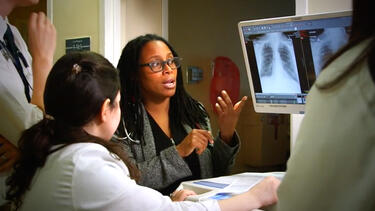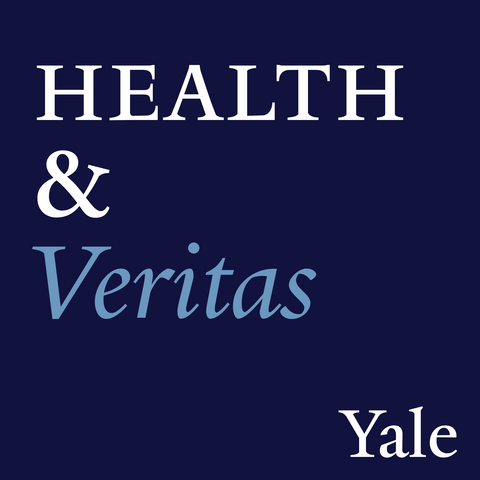Healthcare
Do the New Obesity Drugs Pay for Themselves?
Could expensive drugs like Ozempic save healthcare systems money by reducing the risk of obesity-associated diseases? A new study co-authored by Yale SOM’s Jason Abaluck suggests that other health expenses may actually increase over the first couple years of treatment.

The History of the Forgotten Pandemic
In 1957, a novel strain of the flu spread around the world, the first global outbreak since the 1918 flu pandemic. More than one million people died, 116,000 of them in the United States. But schooling, shopping, and sporting events went on as normal, and the pandemic has largely faded from public memory.
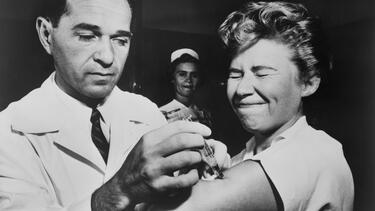
Did Congress Just Fix Surprise Medical Billing?
A new federal law prevents patients from being billed by out-of-network doctors after being treated in an in-network hospital. We asked Prof. Fiona Scott Morton, whose research helped bring the practice to light, what the new law will mean for patients and healthcare costs.

Study Shows Which Restrictions Prevent COVID-19 Fatalities—and Which Appear to Make Things Worse
New research from Yale SOM’s Heather Tookes and Matthew Spiegel finds that mask mandates, closing restaurants, and stay-at-home orders are all effective at saving lives, but other commonly used measures can actually worsen the spread of the pandemic.

Pharma Collaborates in the Fight against the Pandemic
Nandish Poluru ’13 discusses the pharmaceutical industry’s unprecedented cooperative efforts to treat and prevent COVID-19.
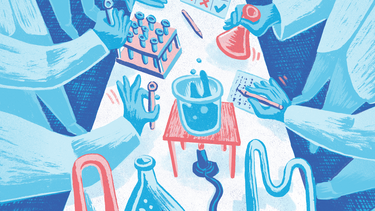
A Life-Changing Vaccine, If We Do It Right
Pfizer’s announcement that its experimental COVID-19 vaccine appears to be more than 90% effective has provided hope for relief from the increasingly calamitous onslaught of the virus. We asked Yale SOM’s Dr. Howard Forman about next steps.

Delivering Holistic Healthcare in an Underserved Community
Dr. Suzanne Lagarde ’14 describes how her federally qualified nonprofit health center is both adapting and expanding to meet new needs in an underserved community.
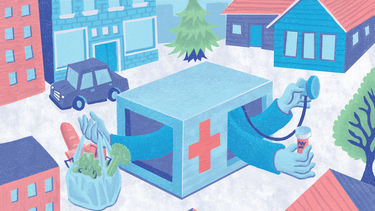
Testing Sewage Can Provide an Early Warning of COVID-19 Outbreaks
Earlier this year, a team of Yale researchers showed that the concentration of COVID-19 RNA in sewage mirrors the spread of the disease through a population. In a new study, they find that testing sewage can serve as an early indicator of an outbreak relative to hospitalizations.

Study Finds Hospital Desegregation Didn’t Improve Mortality Rate for Black Infants
Efforts in the late 1960s to desegregate hospitals in the American South did not significantly contribute to improvements in the Black infant mortality rate, finds a new study co-authored by Dean Kerwin Charles.

In Defense of (Mathematical) Models
Epidemiological models have played an influential role in governments’ responses to the COVID-19 pandemic. Yale SOM’s Edieal Pinker takes a look back at one of the most influential models and argues that such rigorous efforts at understanding the likely course of the disease, while imperfect, are critical to good decision making.
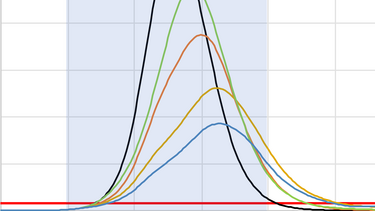
What’s the Path to Equity in Health?
We talked to Dr. Marcella Nunez-Smith, a Yale internist and an expert on the structural barriers to equitable treatment and health outcomes for people of color and other vulnerable populations.
